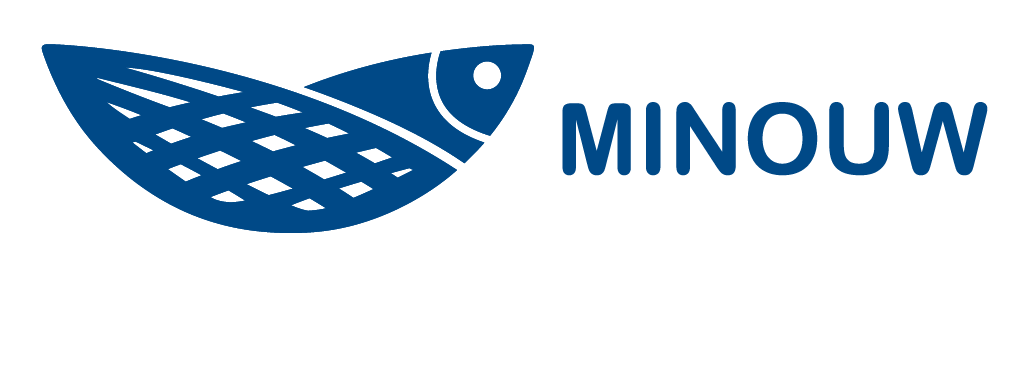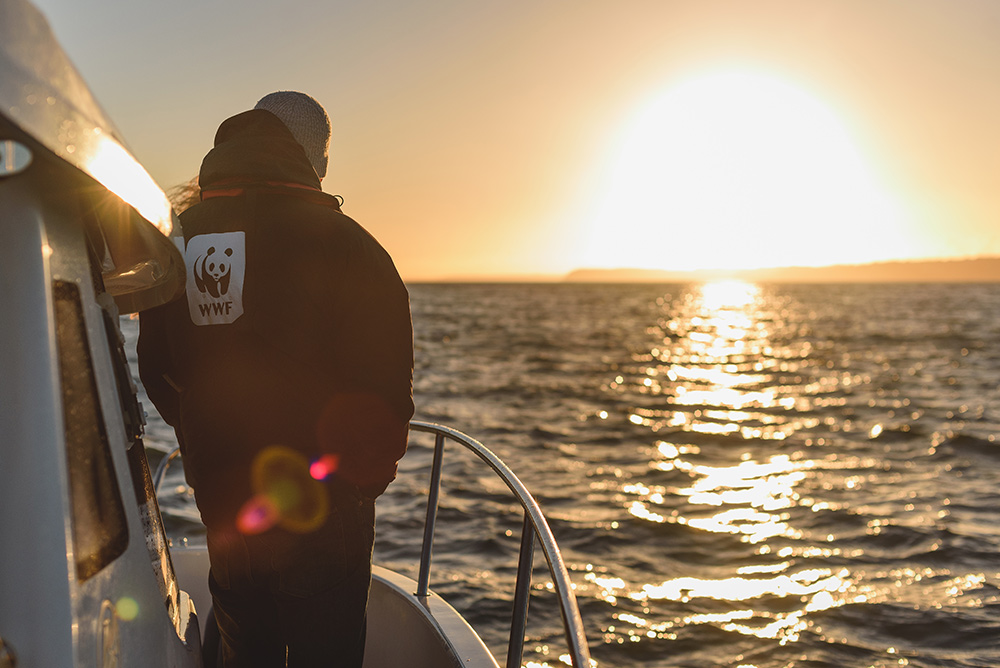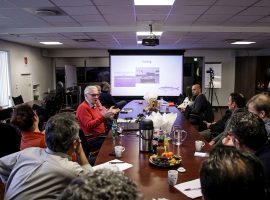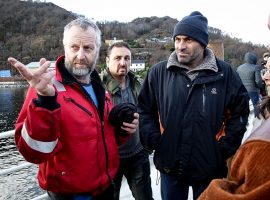After four years the MINOUW project has come to an end. After all the challenges, successes and great experiences, what happens now?
Creating a positive change in the sea
Our aim over the last four years has been to create “a positive change in the sea” - by placing fishers at the centre of actions to reduce unwanted catches and discarding practices, and by involving all stakeholders in the design and implementation of actions to bring about change.
To better understand the nature of the issue of discards and their impact in ecological, socioeconomic and technical terms, the MINOUW project brought together over 15 institutions and organisations, with technologists, scientists, universities, NGOs, local fisheries managers and fishers themselves all working towards a common goal.
With over 17 case studies spread across 7 countries completed, including fisheries using trawl gears, purse seines, dredges, traps, pots, nets and longlines, working hand in hand with fishers to develop and test potential solutions, we learned a great deal.
Developing shared solutions using fishers expertise
After four years of work our results clearly show that the use of more selective gears, in almost all types of fisheries, would have a positive impact in reducing discards as well as decrease fishing mortality of target stocks in commercial fisheries.
For example, the Spanish Ministry of Agriculture and Fisheries is currently planning to apply the T90 mesh panel - a simple adaptation to trawl fishing gear that reduces undersize catch in European hake by 52% trialled in MINOUW - to the entire Mediterranean Spanish fishing fleet. Fishers played an integral role in the development and implementation of the T90, and their suggestions provided useful technical indications for constructing the experimental nets.
The guarding net developed alongside fishers in Viareggio was awarded 'Best practices in SSFs for research and data collection' at the the FAO/GFCM and European Commission organised "High-level Conference on Sustainable Small-Scale Fisheries in the Mediterranean and Black Sea” (Malta, 25-26 September 2018). This gave much greater visibility to a simple adaptive technique that can reduce discards in Caramote prawn fishing by up to 75%. This technique has been successfully extended to other fisheries, such as the cuttlefish trammel net fishery in the Spanish Mediterranean.
Following a MINOUW sponsored exchange between Norwegian fishers and fishers from southern Europe, the Consiglio Nazionale delle Ricerche (CNR - the Italian National Research Council), together with local fishers, tested two types of sorting grids for small scale fisheries in Sicily.
The results showed a reduction of up to 30-40% in the presence of juvenile fish in the trawl nets. Fishers were keen to adopt the technique and enjoy its significant benefits, both in improving efficiency and reducing environmental impact.
MINOUW’s inclusive approach, a key to success
These results were only made possible by working closely with fishers. Our participatory approach brought all stakeholders together for the first time, and was key to our success both in identifying the impact of more selective gears, and in showing how fisheries can be more sustainably and cooperatively managed.
Nowhere was this more apparent than in our peer-to-peer exchange programmes between fishers from across the Mediterranean, where insights and experiences of how other techniques could be used in different fisheries were shared between fishers.

“Throughout the project we’ve fostered relationships amongst all actors at all levels. These are now much stronger than four years ago, and have shown us that a participatory, stakeholder-led approach is the best and only way to ensure a truly sustainable Mediterranean.”
Francesc Maynou. CSIC, MINOUW team leader
Leaving a legacy for the work to continue
For sustainability across all of the Mediterranean, we need to ensure what we have learned is shared between all fishers, so we can build on the successes of an approach that has worked so effectively throughout the MINOUW project.
Practical solutions exist and all key actors – policymakers, fishers, fishery managers, fishery control agencies, and scientists and technologists – have important roles to play.
However, these roles can only be effective if they are approached collaboratively: fisheries managers need to get out in the field, control agencies need to work closely with industry, fishers need to talk to scientists, and so on.
Change is possible if everybody works together
In closing, through all of our work we have learnt that change is possible, but only if we recognise the need for all stakeholders to work together towards a common goal: this mindset needs to be shared by everyone who wants a sustainable future for European fisheries.
Finally, we must work towards finding solutions to the problem of discards in the following order of priority:
2. Select (modify fishing gears and methods to increase selectivity);
3. Utilise (use and make the most of former discards).
You can read our recommendations for discard-free fisheries in full here.
Without the dedication and participation of the partners, colleagues, scientists, fishers and fisheries managers who have been part of the project over the last four years, our work would not have been possible. e want to thank each and everyone of them for all of their efforts, contributions, and most importantly their cooperation.
Although the project is formally over, members of the MINOUW consortium will continue to work towards finding solutions to enhance selectivity and create sustainable fisheries. The team will build on our success by developing a second phase of the project and promoting solutions to fishers through additional smaller projects; always believing that by working together we can create a positive change in the sea.
Additional information
MINOUW recommendations for discards free fisheries - English (pdf)
MINOUW recommendations for discards free fisheries - Spanish (pdf)
MINOUW recommendations for discards free fisheries - Italian (pdf)
MINOUW recommendations for discards free fisheries - Portuguese (pdf)
MINOUW recommendations for discards free fisheries - Greek (pdf)
MINOUW recommendations for discards free fisheries - French (pdf)
MINOUW recommendations for discards free fisheries - Croatian (pdf)
MINOUW recommendations for discards free fisheries - Slovenian (pdf)





